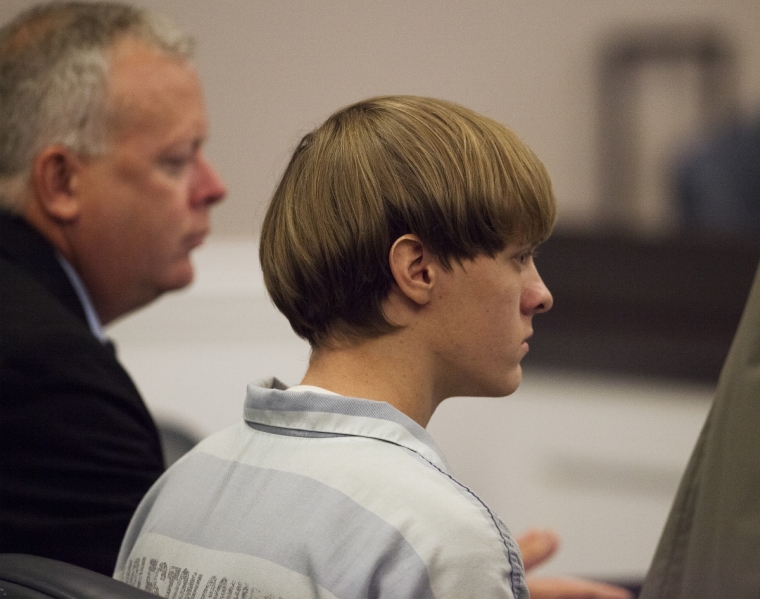Hate crimes indictment notes Charleston shooter's goals to kill religious African-Americans

WASHINGTON (Christian Examiner) – A federal grand jury has returned a 33-count indictment against Dylann Storm Roof, the 21-year-old who authorities allege shot and killed nine church members during a Bible study at Charleston's famed Emanuel African Methodist Episcopal Church June 17.
The charges were announced by U.S. Attorney General Loretta Lynch during a press conference in Washington July 22. She was joined in the announcement by the Mark Giuliano, deputy director of the FBI, and Vanita Gupta, head of the Department of Justice Civil Rights Division.
According to the indictment, the charges against Roof include federal hate crimes, as well as firearms charges, for the murder of the church members, including its pastor. Several counts charge him with attempted murder, as well.
On that summer evening, Dylann Roof found his targets, African Americans engaged in worship. Met with welcome by the ministers of the church and its parishioners, he joined them in their Bible study group. The parishioners had Bibles. Dylann Roof had his 45 caliber Glock pistol and eight magazines loaded with hollow point bullets.
Lynch said Roof attacked the church members "because of their race and in order to interfere with the exercise of their religion."
"As set forth in the indictment, several months prior to the tragic events of June 17, Roof conceived of his goal of increasing racial tensions throughout the nation and seeking retribution for perceived wrongs he believed African Americans had committed against white people," Lynch said.
"To carry out these twin goals of fanning racial flames and exacting revenge, Roof further decided to seek out and murder African Americans because of their race. An essential element of his plan, however, was to find his victims inside of a church, specifically an African-American church, to ensure the greatest notoriety and attention to his actions."
Lynch said in the announcement that South Carolina is also prosecuting Roof, but the federal charges will likely be addressed first given the nature of the crime. South Carolina does not have a hate crimes statute, Lynch said, and the federal statute was created "to vindicate the unique harms caused by racially motivated violence."
"On that summer evening, Dylann Roof found his targets, African Americans engaged in worship. Met with welcome by the ministers of the church and its parishioners, he joined them in their Bible study group. The parishioners had Bibles. Dylann Roof had his 45 caliber Glock pistol and eight magazines loaded with hollow point bullets," Lynch said.
According to the attorney general, Roof faces life in prison or the death penalty, but she said a decision has not been made you as to whether the federal government will seek the death penalty. South Carolina could, however, if the federal government does not.
Federal hate crime charges were expected from the outset of the investigation into the church shooting. After Roof's capture in Shelby, N.C., those suspicions were confirmed when the federal government assigned two top public defenders to the suspected mass murderer.
The federal indictment was not released with Lynch's statement and will likely remain sealed until the trial begins in Charleston.
Roof's prosecution under the Shepard-Byrd Hate Crimes Prevention Act – named for the gay Wyoming man reportedly beaten to death for his sexual orientation in 1998 and a black man dragged to his death on a Texas road because of his race in the same year – has been used sparingly by federal prosecutors. Until its passage in 2009, there was no single U.S. statute dealing with hate crimes.
Defendants in both Arkansas and Tennessee, however, have been convicted recently of crimes under the federal hate crimes statute.
RELATED ARTICLES:
Charleston slave cabins, forgiveness at Mother Emanuel stirs Georgia Baptist college president
Charleston shooter wanted to start race war; surprised at 'nice' church people
Professor laments heresy of 'white Christian theology' in Charleston attack
Nine dead in Charleston, South Carolina church massacre [Video]